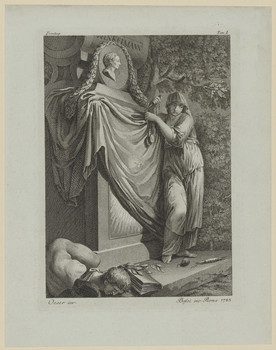Longing for what we have lost 1.3
Winckelmann’s journey into the Classical past
Death in Trieste

Winckelmann’s writings on Greek and Roman art gained him fame throughout Europe but he never visited Greece. At the height of his success he decided instead to travel to northern Europe, but only made it to Vienna before turning back to Italy. Breaking his journey in Trieste, Winckelmann was befriended by a man named Francesco Arcangeli who would make that city the final stop on Winckelmann’s journey. On June 8th 1768, Arcangeli attacked Winckelmann in his hotel room: an attempted robbery that resulted in murder. Winckelmann died abruptly, in his prime. Goethe finds fortune in this circumstance, using Winckelmann’s death to elevate him to the realm of the Greek heroes:

He lived as a man, and as a complete man he went from hence. He now enjoys in the remembrance of posterity the distinction of appearing eternally able and eternally strong: for it is in the form in which a man leaves the earth that he walks among the shades, and so Achilles remains ever-present for us as an eternally aspiring youth.[1]
[1] Goethe 1805, 258. (German aesthetic and literary criticism: Goethe)
